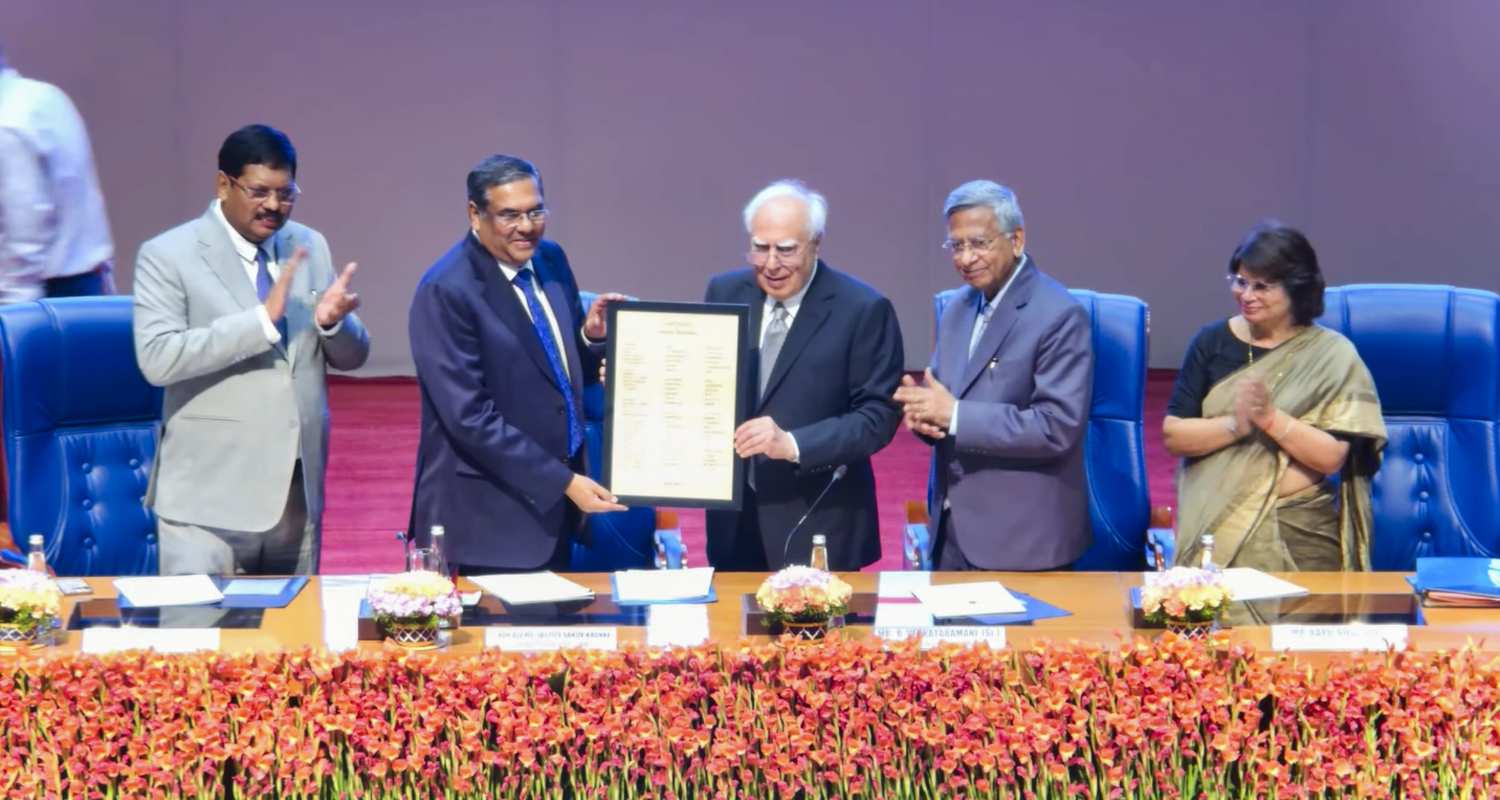Chief Justice of India (CJI) Sanjiv Khanna officially retired on Tuesday, marking the end of his distinguished tenure as the 51st Chief Justice of the Supreme Court. In a ceremonial session held at the apex court, Justice Khanna bid an emotional farewell to his colleagues, handing over the reins to his successor, Justice Bhushan Ramkrishna Gavai, who will be sworn in as the 52nd Chief Justice of India on Wednesday.
Addressing the ceremonial bench, Justice Khanna reflected on his journey and the institution's enduring credibility.
"I am speechless. I carry a lot of memories. Once you are a lawyer, you remain a lawyer," he said.
"The public trust that the judiciary has cannot be commanded and has to be earned. Judiciary is a common term that represents both the Bench and the Bar. The Bar is the conscience keeper."

Justice Khanna highlighted the importance of diversity on the Bench, emphasising how judges from different social, regional, and professional backgrounds contribute to balanced and just decision-making.
During his tenure, Justice Khanna authored and contributed to several landmark judgments that have had far-reaching legal and political implications. Some of the most notable include:
1. Article 370 Abrogation (December 2023): As part of a five-judge Constitution Bench, Justice Khanna played a key role in upholding the Union Government's 2019 decision to revoke Article 370, which granted special status to the erstwhile state of Jammu and Kashmir. The judgment affirmed the constitutional validity of the move, marking a significant political and judicial moment.
2. Electoral Bonds Declared Unconstitutional (February 2024): In a unanimous verdict, the Supreme Court struck down the Electoral Bonds scheme that had allowed anonymous political donations. Justice Khanna was part of the bench that ruled the scheme violated citizens' fundamental right to information and undermined transparency in political funding, citing Article 19(1)(a) of the Constitution.
3. Hate Speech vs. Free Speech (December 2020): In the case involving journalist Amish Devgan, who faced legal action over derogatory remarks against Sufi saint Moinuddin Chishti, Justice Khanna drew a clear line between hate speech and constitutionally protected free speech. He stressed the importance of criminalising hate speech and laid down parameters to identify it.
Also Read: CJI Sanjiv Khanna recuses from IOA and AIFF cases
4. SSC Appointments in West Bengal (April 2024): Justice Khanna upheld the Calcutta High Court’s decision to invalidate nearly 25,000 appointments of teaching and non-teaching staff made by the West Bengal School Service Commission in 2016. The verdict was a significant step toward ensuring transparency and accountability in public recruitment.
5. Arrest Powers Under GST and Customs Acts (March 2024): Heading a three-judge bench, Justice Khanna upheld the constitutionality of Sections 69 and 70 of the GST Act, which empower officials to arrest and summon individuals. He also clarified that anticipatory bail can be granted for offences under the GST regime, providing greater legal clarity.
6. Interim Bail to Delhi CM Arvind Kejriwal (July 2024): Justice Khanna, while granting interim bail to then Delhi Chief Minister Arvind Kejriwal in a money laundering case, highlighted the need for the Enforcement Directorate to maintain consistency in its arrest protocols under the PMLA. The judgment was viewed as a reminder for investigative agencies to act with fairness and transparency.
Justice Sanjiv Khanna’s tenure was marked by firm legal reasoning, an emphasis on judicial transparency, and a commitment to upholding constitutional values. As he passes the mantle to Justice BR Gavai, the judiciary prepares for a new chapter, building on the foundation laid by his leadership.
Also Read: CJI steps down from Waqf case, skips interim stay decision



